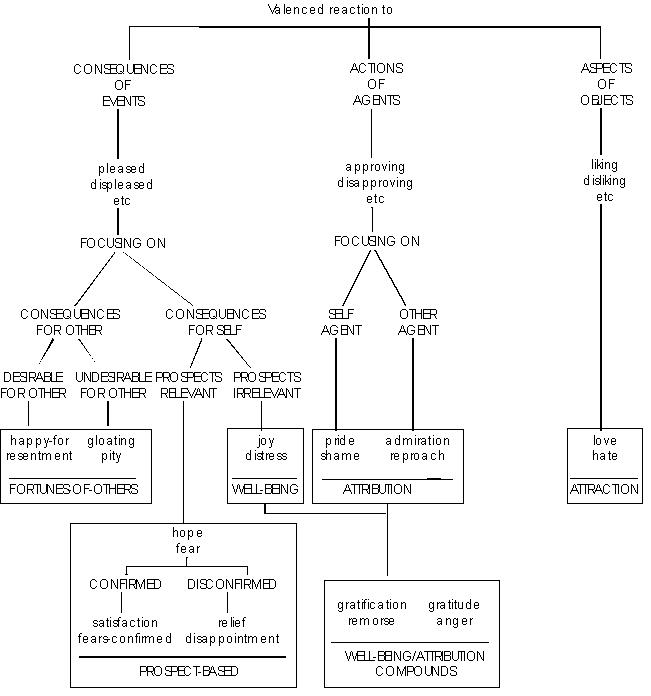Clore & Ortony's cognition theory for emotion
I can't help thinking of that song..
The long and winding road
That leads to your door
Will never disappear
Ive seen that road before
It always leads me her
Lead me to you door
Although is not about a person but about my passion in sutdying emotion & cognition neurology. Sometimes the frustration is from being outside the academic circle or feeling rejected by people who are in the circle. But why? Why do people need to pour cold water on a person who is passionated in this aspect? Also why should I "feel" frustrated? This is an interesting and emotion related question.
Lately I am reading a book called Cognitive Neuroscience of Emotion. I like Clore and Ortony's clever constructed cognition theory in emition, though not totally agree with it.
In an experiment, they research participant reported she's been angry with her friend because her friend stole a book at the bookstore where he worked. What's this "anger emotion" about? Their theory is its a combination of two things: one is her disaproval of the behaviour since it violates the "standard", second is that this disproval or standard violation might jepordize their friendship.
Clore and Ortony have categorized emotion priming/appraisal to two approaches: top-down and bottom-up. For buttom up process, there are three major sources: about consequence of events, actions and aspect of objects. (as below)

The top-down process involves "reinstatement" cognitive process. The reinstatement of prior appraisals from earlier situations. The examples are fearful veterans.
"Fear is a reaction to appraisals of threat, and the fact that the veteran's appraisal of the greenhouse as a threat was unconscious, was pathetically mistaken, and was based on only superficial similarities to a past emotion arose when a situation took on a particular meaning.
They also argue that there is no "precognitve process" suggested by Bargh, Greenwald and others experiments of subliminal exposure effects. Those experiments involve quickly mask the first stimuli so that subjects don't remember seeing the stimuli, however are affected by the stimuli unconsciously. Core and Ortony's arguments is there are two types of meanings of the visual stumili: the contextual (spatial-temporal) and semantic (or taxon) meaning. Therefore the subjects have recieved the semantic meaning of the stimuli but not the contextual one. This theory is backed up by the late discovery of cognition neuroscience research in memory and learning.

They also talk about the effect of the emotion without contextual association. When people lost the contextual association of emotion, they might misattribute emotions. However when the subjects became aware of these mased stimuli, the influences disappear.
As a result, mood-based feelings are easily misattributed to whatever stimulus is being processed at the thime. Hence, general moods (and moodlike conditions such as depression) are much more likely than specific emotions to result in contamination of judgement and decision.
... Freud was similarly impressed by such phenomena. He observed that unconscious stimuli with emotional potential could have wide-raging effects on dreams, symptoms, and behavior that could be neutralized simply by "making conscious" the unconscious origin of the influence.
They also suggest that express feelings to professionals, friends, strangers or simply to oneself' as in a diary, organizing one's thoughts about trauma can avoid misattribution effects. In other words, this process will strengthen the association between emotions to specific events and avoid generalization.
2 comments:
Clore and Ortney's theory is good but it is not correct. This theory is based on agents, events and objects. The whole point of an object is to not have emotional ramifications. Also, what it says about fear is wrong. Fear is excessive worry. The statements, "I worry I might have cancer," and, "I fear I might have cancer," mean the same thing.
Emotion theory must be based on subjects and relations. Subjects and relations are the most general of all words. Putting them in a system is the highest of all possible systems. This theory can be seen at:
http://subjectsandrelations.com
Post a Comment